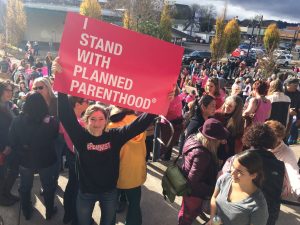The Common Reading for all incoming freshmen this year at the University of Oregon was Between the World and Me, by Te-Nehisi Coates. This profound book has initiated conversations around campus, particularly in the context of the current political climate. Coate’s UO talk was February 3rd, 2017.
Momo Wilms-Crowe has volunteered some reflections for the CGO as we lead up to what promises to be a profound speaker.
Between The World and Me: A Response
 I read Between the World and Me for the first time over summer and I remember myself crying the type of tears that demand recognition. I read it again this past weekend in preparation for Te-Nehisi Coates’ upcoming talk and to no surprise, I cried again. I was reminded of the feeling I felt months ago, and that I feel often enough now after a term and a half in the CGO, that I am not all that surprised by it now. It is a the feeling of intense sadness and despair at the situation of our country and our world. The kind of feeling that grabs you by the shoulders, sits on your chest, and makes you feel small.
I read Between the World and Me for the first time over summer and I remember myself crying the type of tears that demand recognition. I read it again this past weekend in preparation for Te-Nehisi Coates’ upcoming talk and to no surprise, I cried again. I was reminded of the feeling I felt months ago, and that I feel often enough now after a term and a half in the CGO, that I am not all that surprised by it now. It is a the feeling of intense sadness and despair at the situation of our country and our world. The kind of feeling that grabs you by the shoulders, sits on your chest, and makes you feel small.
This feeling worries me because it implies an inability to act. It means, despite whatever I feel I need to do, I am not doing anything worthwhile. The task of how to best navigate the minefield of processing and moving forward is overwhelming. This is because I cannot imagine a way of moving forward what caused these injustices is so fundamentally wrong, and that is where my logic stops. This acute feeling and the lack of autonomy that ensues is unnerving.
In the racism Coates’ speaks about, like many of the injustices in America, the individual is the victim and “society” the victor, the perpetrator of the violence through its thoughtful machines and institutions. This makes the process of falling into cynicism and hopelessness even easier since the problem (and thus the solution) is seemingly distant and esoteric. It’s intimidating to begin to attack a beast that you do not understand nor can you even fully see. That is, of course, until something happens and you are personally pulled into the narrative and cannot stand still any longer. Often, I believe, we are only thrust into activism when we are personally affected by it and we lose the “privilege of living in ignorance” (Coates, 107). Experiencing injustice helps break the feeling of paralysis and propels one into action. Intense emotions- anger, grief, despair – fuel the fight for justice. And because each day people are suffering and being forced into these emotions, the fight continues as a whole.
In our society of social media and superficiality, it is increasingly easy to feel like you’re doing something when you are really doing nothing at all. Social media offers an amazing platform for spreading messages, and no doubt, change is often made this way. But it also breeds the idea that posting/tweeting/liking/sharing is doing enough. That ally-ship is a one-time duty and a box to check off rather than a constant practice. I am by no means claiming innocent to this crime, nor saying it must be considered a crime for everyone. The facade of passion in the absence of definite, tangible, action simply doesn’t cut it. It brings up the age-old struggle of “walking the talk.” In my mind, lack of action, despite the intentions, constitutes an action in itself. In Coates’ words, “‘Good intentions’ is a hall pass through history, a sleeping pill that ensures the Dream” (33). The Dream Coaets’ refers to here is not an idyllic paradise, but the ignorance of living in a society built up slavery and violent racism.
 I have no will to live a life in the Dream and have already had my share of experiences that have shattered that dream. In my high school, with enough students of color that I could count them on one hand, I was only passively taught about race and racism, and looked at it from a very academic viewpoint. I read personal monologues from slaves and analytically connected that to the differential incarceration rates of today’s America. I, however, never really experienced race in the way that Coates writes about.
I have no will to live a life in the Dream and have already had my share of experiences that have shattered that dream. In my high school, with enough students of color that I could count them on one hand, I was only passively taught about race and racism, and looked at it from a very academic viewpoint. I read personal monologues from slaves and analytically connected that to the differential incarceration rates of today’s America. I, however, never really experienced race in the way that Coates writes about.
I have never witnessed the full horrors that racism can cause nor the incredible strength that makes people continue forward despite the pain. Perhaps this is partly why it is I am so obviously affected by their stories.